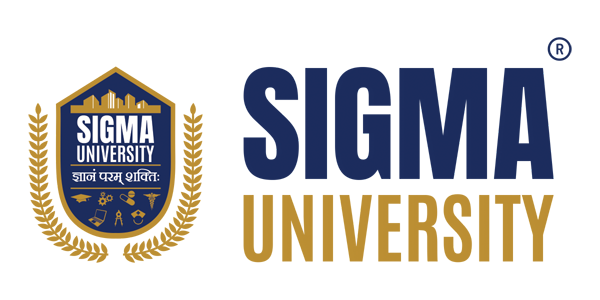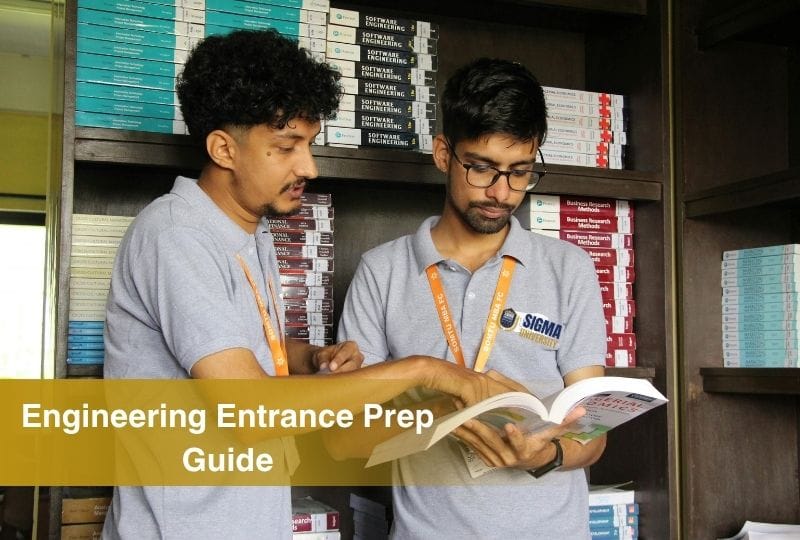The engineering entrance examinations in India are among the most competitive academic entrances in India. Whether the national-level exams like the JEE Main, Advanced, and state-level fair such as MHT- CET, AP EAMCET, or VITEEE, these exams need meticulous and well-organized preparation. This guide takes you through the process, how to understand the exam landscape, strategic study planning, learning by subject, and the balancing of board exams and entrance exam prep.
Understanding the Engineering Entrance Exam Landscape
Top Engineering Entrance Exams in India
India offers multiple pathways to engineering colleges. At the national level, JEE Main, conducted by NTA, is the grooming ground for IITs, NITs, IIITs, and numerous private institutes. Near its apex, JEE Advanced challenges the most dedicated aspirants, demanding speed, accuracy, and conceptual strength. State exams such as MHT-CET, WBJEE, GUJCET, OJEE, and university-level tests like VITEEE or BITSAT offer admission to prominent colleges within specific regions.
These tests mostly include Physics, Chemistry, and Mathematics, along with a wide array of question formats adopted, such as multiple-choice, choice to numerical-type values/questions, or aptitude-related. The pattern, frequency, and cut-offs are critical to understanding to preparing accordingly.
Exam Pattern & Syllabus Overview
Most engineering exams follow an MCQ-centric format, supplemented by numerical or application-based questions. For example, JEE Main spans 90 questions across PCM with a negative marking scheme. State CET syllabus often aligns with the respective board’s Class 11 and 12 curriculum, but may emphasize speed. Knowing the focal points, physics fundamentals, chemistry reactions, and math problem-solving is a prerequisite for mapping preparation.
Step-by-Step Preparation Strategy for Engineering Exams
Step 1 – Analyze the Syllabus & Exam Pattern
Kickstart by revising the syllabus and pattern of the current year’s exams. Give the highest weightage to the topics with the easiest level of comfort. A critical piece of information in this strategic base is provided by historical trends and the analysis of questions, as the recurrent concepts can be seen in that way.
Step 2 – Create a Realistic Study Schedule
Prepare a day and a week schedule. Spend 6-8 hours of preparation regularly; rebalance PCM topics, revision, and training. Incorporate brief restorative breaks; this will keep you motivated and mentally alert. Retention is better when it is consistent rather than high in volume.
Step 3 – Gather the Right Study Materials
Start with the NCERT textbooks to get a clear notion of concepts. You can use regular books, the H.C. Verma book in Physics, the O.P. Tandon book in Chemistry, and the R.D. Sharma Book or the Cengage book in Math. Do not jump constantly between resources, but rather stick to one resource and master it through repetition.
Step 4 – Focus on Conceptual Clarity
Don’t cram formulas; learn to understand. Apply problem cases and variations in real life to reinforce things. Solve problems of different difficulty and make sure you are well aware of each solution route.
Step 5 – Practice with Mock Tests & Previous Papers
Set mock papers and time them to add an exam-stress element. Understand the difficulty, unblock the speed, and polish the precision. There is a learning of patterns, repetition, and time management in solving previous papers.
Step 6 – Analyze & Improve Weak Areas
Track your failures and poor areas. Underline and highlight what you learn/read, and return to the concepts often. Errors must be used by way of maximize the process, rather than halting. Discover the trends in which mistakes occur and consequently seal these cracks permanently.
Subject-Wise Preparation Tips
Physics
Focus on the rudimentary concept and its practical implications. Regular drilling in the numerical and reasoning techniques improves the thought process.
Chemistry
It is subdivided into Physical, Inorganic, and Organic. Apply reaction maps, formulaic derivation of inferences to organic questions, and high-yield practice. A good understanding of such fundamentals as thermodynamics or reaction mechanisms is required.
Mathematics
Emphasis on finding solutions and speed. Learn techniques as opposed to simply giving formulae solutions. Subjects such as calculus, algebra, and coordinate geometry will get reward points-exercise different types of problems as many times as possible.
Managing Board Exams Alongside Entrance Preparation
Simultaneous board and entrance prep demands smart scheduling. Use board exam preparation as revision; most concepts overlap. Allocate weekend blocks for entrance-specific practice. Open-schooling options (like NIOS) demonstrate how flexibility aids focused entrance preparation.
Coaching vs Self-Study for Engineering Entrance Exams
Coaching provides structure, mentoring, and peer motivation. Self-study requires discipline, resourcefulness, and self-analysis. Both paths are viable. Platforms like SATHEE democratize structured preparation for those without coaching. High achievers often combine disciplined self-study with periodic guided learning.
Common Mistakes to Avoid in Engineering Exam Preparation
Avoid these pitfalls:
- Constantly jumping between books instead of mastering one
- Ignoring revision in favor of new topics
- Neglecting mocks or failing to analyze performance
- Overloading study sessions without breaks, leading to burnout
Staying focused, consistent, and revision-oriented is key.
Using Online Resources for Effective Preparation
Digital platforms like Amazon Academy and IIT-enabled SATHEE offer free lecture modules, quizzes, and mock tests. Channels like Testbook help with practice and analytics. Use them for structured self-study, doubt clearing, and performance tracking.
Final Tips for Cracking Engineering Entrance Exams on the First Attempt
Portable takeaways for success:
- Start early, some begin as early as Class 8 or 9
- Maintain consistent revision cycles
- Practice under timed conditions regularly
- Stay disciplined, balanced, and mentally fit
- Learn from mistakes and adapt strategy over time
Engineering Entrance Exam Prep – FAQs
How many hours should I study daily for engineering entrance exams?
For effective engineering entrance exam preparation, students should study at least 6–8 hours daily with a well-balanced routine. Quality matters more than quantity, so focus on consistent, distraction-free study sessions. Divide time wisely among Physics, Chemistry, and Mathematics, and dedicate additional hours to solving practice papers and mock tests. Ensure breaks and proper rest to maintain focus. Smart study with regular revisions is key to cracking engineering entrance exams.
What is the best way to prepare for JEE Main at home?
The best way to prepare for JEE Main at home is to create a realistic timetable, analyze the syllabus, and rely on NCERT books for strong fundamentals. Use additional resources like practice papers, online mock tests, and recorded lectures for conceptual clarity. Stay consistent with daily study targets, revise regularly, and practice problem-solving under timed conditions. A disciplined approach, combined with self-evaluation and doubt-solving through online platforms, ensures effective JEE Main preparation.
Which are the best books for engineering entrance exams?
Some of the best books for engineering entrance exams include NCERT textbooks for basics, Concepts of Physics by H.C. Verma, Problems in General Physics by I.E. Irodov, and Objective Mathematics by R.D. Sharma. For Chemistry, Organic Chemistry by Morrison and Boyd, and Physical Chemistry by P.W. Atkins are highly recommended. These resources, combined with practice papers and mock test series, help aspirants strengthen concepts and prepare thoroughly for engineering entrance exams.
How important are mock tests for engineering exam preparation?
Mock tests are extremely important for engineering entrance exam preparation as they simulate the real exam environment and help students manage time effectively. They highlight strengths, expose weak areas, and improve accuracy under pressure. Regularly practicing mock tests builds confidence, reduces exam stress, and sharpens problem-solving skills. Additionally, they train aspirants to avoid silly mistakes and develop exam temperament. Therefore, consistent practice with mock tests is indispensable for engineering exam success.
Can I prepare for engineering exams without coaching?
Yes, it is possible to prepare for engineering entrance exams without coaching, provided you have discipline and the right resources. Self-study with NCERTs, reference books, online lectures, and mock tests can be equally effective. Create a structured timetable, track progress, and practice regularly with previous year papers. Online resources provide solutions, doubt-clearing forums, and test series. With consistency, dedication, and effective self-evaluation, aspirants can succeed in engineering exams even without formal coaching.
How can droppers prepare for engineering exams successfully?
Droppers should approach engineering entrance exam preparation with a structured plan, focusing on weak areas from the previous attempt. Start with syllabus analysis, revise basics, and strengthen problem-solving speed with daily practice. Allocate specific hours to Physics, Chemistry, and Mathematics, and practice previous year papers and mock tests rigorously. Maintain consistency, avoid distractions, and adopt a healthier lifestyle to stay motivated. With disciplined effort, droppers can significantly improve performance in engineering exams.


